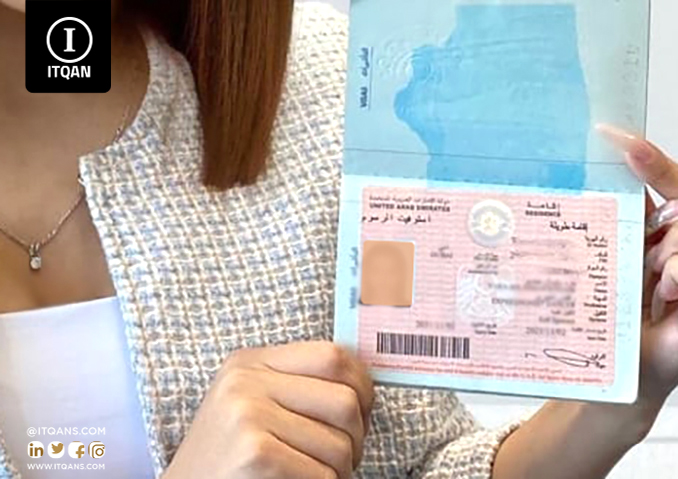Dubai is one of the most prominent global destinations for business and investment, as it provides a suitable business environment that combines government facilities and advanced infrastructure. Dubai is distinguished by its strategic location, which makes it an ideal gateway to access global markets in the Middle East, Africa and Asia. The city is also famous for offering a wide range of investment opportunities in various economic sectors, such as trade, financial services, real estate, tourism, and technology.
Setting up a company in Dubai requires a thorough understanding of local procedures and laws, as well as being aware of the associated costs and opportunities. Through this article, we will review the main steps for establishing a successful business in Dubai, starting from choosing the appropriate type of business activity, through company establishment procedures, to complying with applicable laws and regulations.
In the upcoming chapters you will find detailed information on how to choose a business, obtain the necessary licenses and approvals, as well as the costs associated with launching a business. We will also discuss how to register a business name, choose the ideal location, and open a business bank account. Finally, we will go over the laws and regulations that must be complied with to ensure your business runs smoothly and successfully.
Setting up a business in Dubai can be an exciting and profitable move if planned carefully and implemented effectively. We hope that this article will be a comprehensive guide that will help you achieve your business goals in this dynamic city.

Establishing a business in Dubai
جدول المحتوى
ToggleChoose the type of business activity in Dubai
- Possible business activities
Dubai is considered one of the most economically diverse cities in the world, giving investors and entrepreneurs the opportunity to choose the type of business activity that matches their interests and expertise. Possible business activities include diverse sectors such as trade, real estate, tourism, technology, and financial services. It is important for the investor to conduct a comprehensive market study to understand the demand and supply in the sector in which he intends to invest, which helps to make an informed decision that ensures the success of the project.
- Required approvals and licenses
After choosing the type of business activity, the next step is obtaining the required approvals and licenses. These requirements vary depending on the type of business and the location in which the company will be established. For example, commercial activities related to food and medicine need special approvals from the Ministry of Health and Environment. Investors must check all legal requirements and obtain the necessary licenses from relevant authorities such as the Dubai Economic Development Department (DED) and other regulatory bodies.
- Costs associated with the activity
Costs are a crucial element when choosing a business type. These costs range from company registration fees, site rental costs, to day-to-day operating costs. Investors should develop a comprehensive budget that includes all anticipated expenses, including licensing costs, government fees, and recruitment and training costs. It is also necessary to consider hidden costs that may arise during the company’s establishment and operation phase, such as marketing and promotion costs, maintenance and modernization costs.
By choosing the right business type and ensuring all legal and financial requirements are met, investors can achieve success and profitability in Dubai’s dynamic and evolving environment.
Procedures for establishing a company in Dubai
- Trade name registration
Registering a trade name is the first step in the process of establishing a company in Dubai . Investors should choose a name that reflects the company’s activity and is consistent with local laws. It is necessary to check that the chosen name is available and is not similar to the names of other registered companies. This step can be done through the Department of Economic Development in Dubai, where a trade name registration application is submitted and the required fees are paid.
- Site selection and property registration
Choosing the right location for the company plays a crucial role in business success. Investors must search for a strategic location that suits the nature of their business activity and meets the requirements of the target market. After choosing the location, a lease or purchase contract for the property must be signed and registered with the relevant authorities. In addition, approvals must be obtained from relevant authorities such as Dubai Municipality to ensure that the site is in line with building and health regulations.
- Open a bank account
Opening a business bank account is a vital step in running a company’s financial operations. Opening an account requires submitting a set of documents such as a commercial license, articles of incorporation, and the Emirates ID of shareholders. These documents are submitted to the chosen bank, which in turn reviews and verifies them before opening the account. A bank account helps manage cash flows, pay salaries, and facilitate daily financial operations.
By following these procedures, investors can establish their companies in Dubai legally and regulated, ensuring them a strong and sustainable start in the business market.
Comply with laws and regulations for setting up a business in Dubai
- Tax laws
Taxes in Dubai are one of the most important areas that businesses must comply with. Although Dubai has an attractive tax environment, with no personal income tax and no tax on most businesses, there are some taxes that may apply to certain types of business activities. For example, a value-added tax (VAT) of 5% was imposed in the UAE in 2018. Therefore, companies must register themselves with the Federal Tax Authority (FTA) if their annual revenues exceed a certain threshold, and submit periodic tax reports.
- Labor laws
Labor laws in Dubai aim to protect workers’ rights and ensure a healthy and safe working environment. Companies must comply with the UAE Labor Law, which regulates working hours, rest periods, wages, and leaves. In addition, companies must ensure that they provide a safe and risk-free working environment, and adhere to laws related to foreign employment, including obtaining work permits and residency visas for foreign workers.
- Security measures
Security measures include a set of requirements aimed at protecting the human and physical assets of companies. Businesses in Dubai must comply with civil defense laws that require the provision of safety equipment such as fire extinguishing systems and alarms. In addition, companies must adhere to cybersecurity standards to protect sensitive data from hacks and cyberattacks.
Compliance with these laws and regulations is not only mandatory but also enhances the credibility of the company and contributes to building a good reputation in the market. Failure to comply can result in significant financial penalties, business closure, or even criminal penalties in some cases. Therefore, it is always recommended to employ competent lawyers and legal advisors to ensure full compliance with all legal requirements.
Establishing a company in Dubai can be a strategic step towards achieving business success, thanks to the vibrant economic environment, advanced infrastructure and supportive legal framework. By following the systematic steps discussed in this article, entrepreneurs can turn their ideas into reality in one of the most commercially active cities in the world.
Choosing the right type of business, obtaining the required approvals and licenses, and determining the costs associated with the activity are all essential elements that must be taken into consideration to ensure a strong and sustainable start. In addition, facilitating company establishment procedures, such as registering the trade name, choosing a location, registering the property, and opening a bank account, can save time and effort, and allow entrepreneurs to focus on developing their business.
Compliance with local laws and regulations, whether tax, labor or security, is something that cannot be ignored to ensure business continuity and avoid potential penalties. A deep understanding of these laws helps avoid legal and administrative challenges that may affect the workflow.
In the end, establishing a company in Dubai is not just an economic opportunity, but rather an investment in a future full of possibilities and opportunities. With the support of the Dubai government and a favorable business environment, entrepreneurs can benefit from the dynamic market and compete on a global level. We hope that this article will be a useful guide for everyone seeking to turn their vision into a successful reality in Dubai.
The most frequently asked questions about establishing a business in Dubai
How to obtain a business license in Dubai?
The license is obtained from the Department of Economic Development or the competent authority in the free zone by submitting the required documents and paying the necessary fees.
Is there government support for investors in Dubai?
Yes, the government provides support by facilitating procedures, providing incentives in free zones, and providing investment advice.
What is the time period required to establish a business in Dubai?
The time period can vary depending on the type of company and procedures, but it usually takes from a few weeks to a month.
Does the company need a physical office to establish it in Dubai?
In most cases, a physical office is required. However, some free zones offer options for virtual offices or shared spaces.
What commercial activities are allowed in Dubai free zones?
Permitted activities vary depending on the free zone. Investors should check the list of activities permitted in each zone.
Are there restrictions on foreign ownership of companies located in non-free zones in Dubai?
Yes, in non-free zones a local partner is required to hold 51% of the shares, which limits foreign ownership.
















